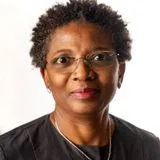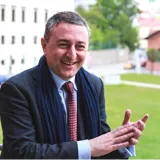Please note: this event has passed
Brazil is one of the founders of the United Nations (UN) and has participated in its peacekeeping operations (PKO) since its origins, 75 years ago. Despite contributing to PKO since the first missions, the country has deployed almost 90% of its peacekeepers in the past 30 years, becoming one of the relevant troops contributing countries. But PKO are not just about quantity - contributions with fewer staff but that are more qualitative in nature also have their strengths.
Approximately 85% of PKO Brazilians have taken part in have been with with officers in individual missions - such as military observer, liaison officer, military adviser and staff officer, and even, in many cases, force commanders. Over the past 20 years these military and police officers have stood out among their peers, resulting in them taking on relevant leadership roles. In addition, Brazil has excelled in its preparation of peacekeepers through its peace operations training centers.
In the 21st century Brazil's contribution to the UN peace and security system goes beyond the number of deployed military and police personnel. The country contribution includes a more intense presence in different forms of leadership at the tactical and operational levels, that promote a mandate of compliance and positively affect the performance of the troops.
What are the needs of the UN in terms of leadership positions in its PKO? What leadership characteristics are required? Which of these characteristics is found in the exercise of leadership by Brazilians, whether in command of troops (small or large fractions), or in individual missions?
To discuss these questions and contribute to the debate on this strategic yet little explored subject, the Brazil Institute in collaboration with the Brazilian Research Network on Peace Operations (REBRAPAZ) called for this online seminar as a part of the King's Brazil Week programme.
Panelists
- Professor Funmi Olonisakin – Opening remarks
- Mr Ivo Werneck
- Dr Eduarda Hamann
- Dr Vinicius Mariano de Carvalho
- Moderation: Dr. Kieran Mitton
Dr Eduarda Hamann is a lawyer and holds a PhD in International Relations. Since 2001 she has worked with UN peacekeeping as a researcher and as a professor/lecturer. Her research experience includes projects for government and non-government institutions, such as the Igarapé Institute and the World Bank, while her teaching experiences are in graduate and undergraduate courses in Brazil, mostly on UN peacekeeping. Since 2016, she has been the coordinator of the Brazilian Research Network on Peace Operations (REBRAPAZ).
Mr Ivo Werneck is a military planner in the United Nations Department of Peace Operations Strategic Force Generation and Capability Planning Cell. He is a former Brazilian Army Colonel, with 30 years of military experience and has a Bachelor’s degree in Military Science, a Master’s degree in Military Operations, and a Master’s degree in Military Science. He completed two full one-year deployments to United Nations Peacekeeping Missions as a Military Observer - in Sudan in 2006, and as a Military Planner in Haiti in 2010. He was also deployed to the Central African Republic in 2014, for three months, to start the planning efforts for MINUSCA.



